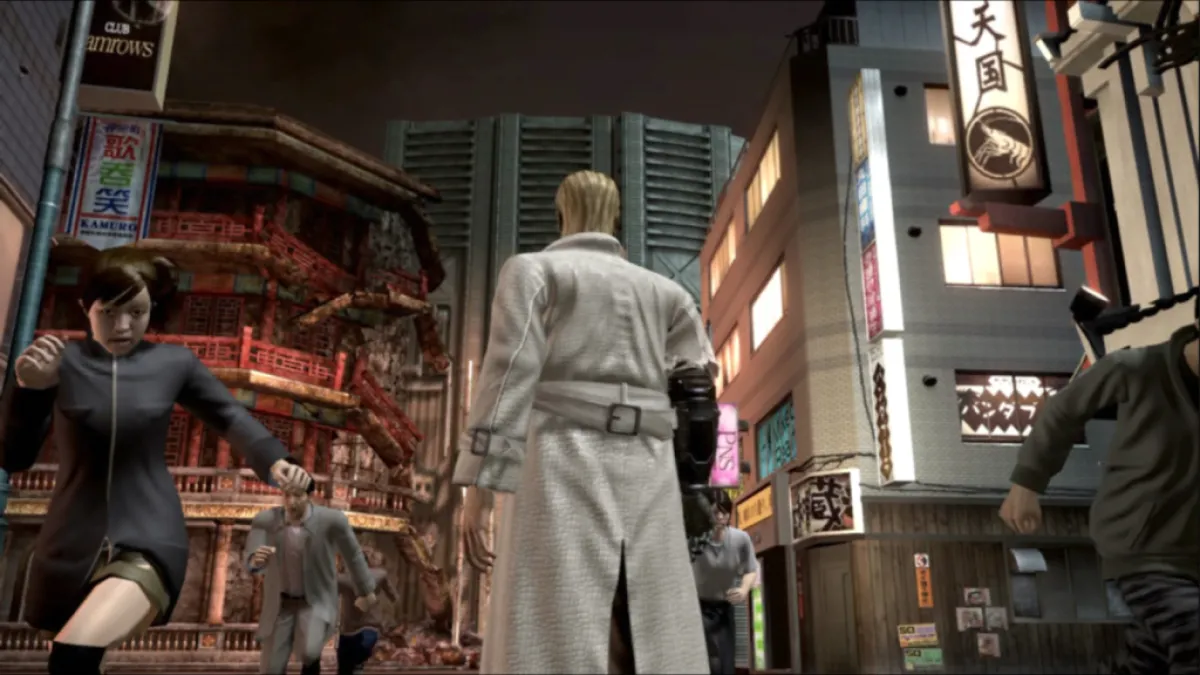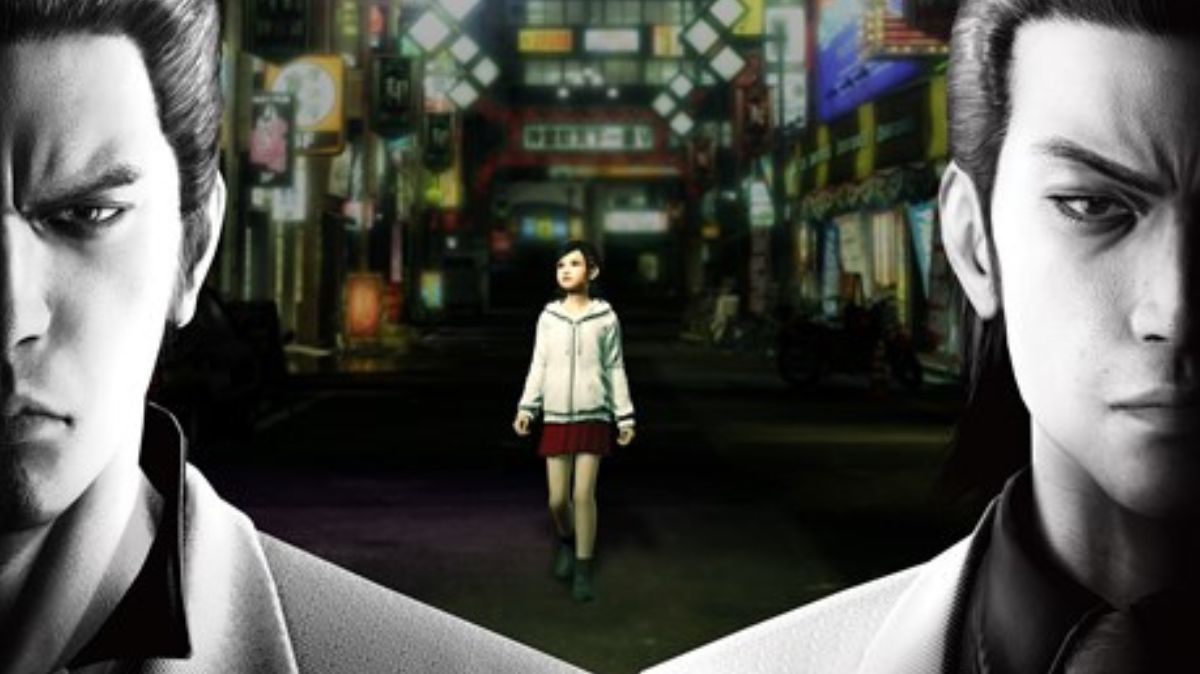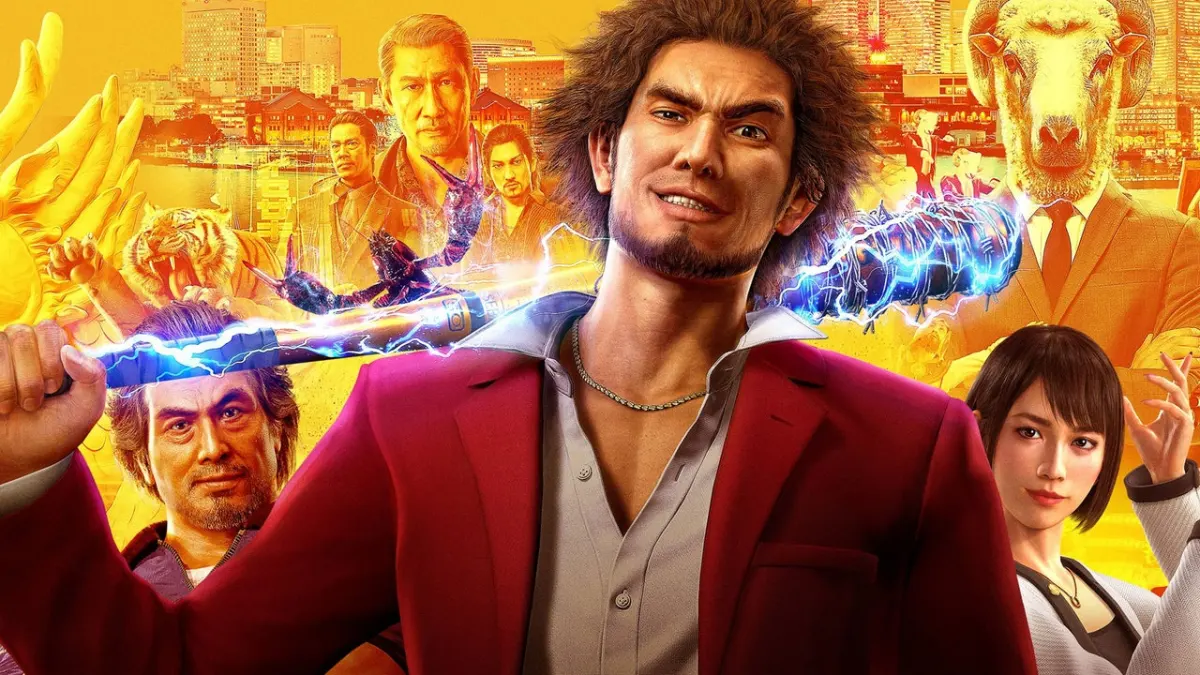The Yakuza series has blended open-world exploration and social simulation with plenty of hard-hitting action since 2005. The series has since transformed into a full franchise, with well over a dozen titles, including spin-offs and remakes. Here are all of the Yakuza games, ranked.
All Yakuza Games, Ranked From Worst to Best
16. Yakuza: Dead Souls

On paper, a Yakuza spin-off set in the midst of a zombie apocalypse sounds like a slam-dunk idea, but this premise’s actual execution fell miserably short. 2011’s Yakuza: Dead Souls for the PlayStation 3 served as a non-canonical sequel to Yakuza 4 as its characters find themselves struggling to survive during an onslaught from the ravenous undead. The game is split into four chapters, each starring a different returning Yakuza character as they battle through waves of zombies.
While it’s fun to see fan-favorite characters in a self-aware zombie action game, Dead Souls just isn’t all that enjoyable to play. Most zombie games count on precise aiming to allow players to pinpoint the undead’s weak points with their weapons, but the aiming system in Dead Souls is absolutely abysmal. With this fatal flaw, Dead Souls collapses under its own ambitions, with future installments wisely avoiding venturing heavily into third-person shooter territory.
15. Yakuza

The 2005 inaugural Yakuza game for the PlayStation 2 weaves a classic crime revenge story, with protagonist Kazuma Kiryu taking the fall for a murder he didn’t commit to protect his best friend. After serving 10 years in prison, the aspiring mobster is released to find the entire Japanese criminal underworld upended by a brazen heist, with the stolen loot up for grabs. As yakuza from all over Japan scour the country for this illicit score, Kiryu learns there is more to the heist and his old relationships than he anticipated.
Like Shenmue before it, Yakuza has a simplistic combat system and a variety of minigames as players immerse themselves. However, this cinematic presentation is undercut by the tedious random encounters and technical limitations on the PS2 hardware, with the game pushing the console’s capabilities. Given the growing international audience Yakuza was receiving, Sega would revisit the original Yakuza in an updated remake years later.
14. Yakuza 3

The main Yakuza series dove into high-definition with 2009’s Yakuza 3 for the PlayStation 3, doubling down on the number of game modes and side missions available. Set months after the events of Yakuza 2, Kiryu delves back into his criminal roots after an orphanage he is running in Okinawa becomes threatened. Returning to Tokyo, Kiryu faces new violent elements among the yakuza that he is determined to root out for good.
The thing about Yakuza 3 is that, while the game significantly expands upon the foundation laid by its previous main installments, it does suffer more than most entries from its localization for Western markets. Entire side missions and minigames were excised from the North American version of the game, while only a portion of it was restored for the 2019 Yakuza Remastered Collection. Though the justification for some of this removal of content is understandable, it does leave the feeling that the game is incomplete, no matter how ambitious Yakuza 3 is.
13. Yakuza 4

2010’s Yakuza 4, originally for the PlayStation 3, lives up to its numbered moniker by bringing in four protagonists in addition to returning character Kiryu. One year after the events of Yakuza 3, a resurgent gang war brings together a group of hardened fighters and killers as violence fills the streets of Tokyo. This quartet stumbles across a power struggle dating back to the events of the original game, making them question their deepest loyalties as they fight for honor once again.
Yakuza 4 is a solid entry in the overarching series, great even, but it is at this point the overall gameplay and narrative formula become more noticeable. Off-setting this slightly is the presence of four protagonists, each with their own arcs and fighting styles that tie into the extensive backstory. For a relative newcomer, there is a wealth of experiences and diversions to enjoy, but the minigames themselves feel like retreads of what had come before, without the same fresh feeling as its expanded scope.
12. Yakuza 2

2006’s Yakuza 2 for the PlayStation 2 really is an all-around improvement over its predecessor while continuing the saga of Kazuma Kiryu. Though the previous game ended with Kiryu seemingly retiring from a life of crime, he has been dragged back into machinations of the yakuza in the face of a mounting gang war. This expands the story from Tokyo to also include Osaka as bloody secrets from the yakuza clan’s past come back to haunt them.
More than just expanding the world, including an increased number of environments and other world-building activities, Yakuza 2 completely revamps the franchise’s combat system. This added depth to the combat mechanics makes for an overall more engaging gameplay experience while adding a whole new level of immersion. Like its predecessor, Yakuza 2 received a remake for modern consoles, only adding to the 2006 classic’s legacy.
11. Like a Dragon Gaiden: The Man Who Erased His Name

After an extended hiatus from the spotlight, Kiryu steps up to return as the protagonist for 2023’s Like a Dragon Gaiden: The Man Who Erased His Name. After faking his death at the end of The Song of Life, Kiryu is working as a clandestine operative for the Daidoji Clan, primarily out of Osaka. However, while working a seemingly routine smuggling job in Yokohama, Kiryu is forced out of hiding to confront a new enemy.
The Man Who Erased His Name offers two different kinds of combat systems – the classic brawling mechanic from past Yakuza games and one relying on precision and high-tech gadgets befitting Kiryu’s new role. While these changes are well-executed, particularly the addition of gadgets, The Man Who Erased His Name is a noticeably shorter experience compared to recent Yakuza games. To its credit, The Man Who Erased His Name was always described as a side story, but it does feel like a glorified prologue to 2024’s Like a Dragon: Infinite Wealth.
10. Yakuza Kiwami

With the Yakuza franchise seeing an influx of new international players after the enormous success of Yakuza 0, Sega decided to remake the oldest games in the series for modern audiences. The first of these was 2016’s Yakuza Kiwami, which remade the original PS2 game, retelling the story of Kiryu emerging from prison after a decade-long sentence. However, Kiwami is more than just a modern facelift of the original game taking advantage of contemporary gaming platforms.
Though the broad strokes of the story remain the same from the original Yakuza, Kiwami completely revamps the combat system, echoing the gameplay mechanics from Yakuza 0. Another major feature from Yakuza 0 retooled for Kiwami has Kiryu’s rival Goro Majima ready to ambush him throughout the city, heightening the animosity between them. A relatively clean transposition of Yakuza 0 to the story of the original Yakuza, Kiwami was a worthy reinvention of the franchise’s foundation.
9. Judgment

If Yakuza went goofier in tone with Like a Dragon, it became more gravely serious with 2019’s spin-off Judgment. The game follows Detective Takayuki Yagami as he investigates a serial killer who removes the eyes of their victims across Tokyo. As Yagami builds up relationships with those surrounding his investigation, he takes on side cases, from criminal to personal matters, in the city.
Judgment features a combat system similar to Yakuza 0 but also an investigation gameplay mode as Yagami gathers clues, infiltrates different areas, and tails suspects. Though this new mechanic certainly gives the franchise some gameplay variety, they’re clumsily executed, particularly with the tailing missions. Still, Judgment is a welcome change of pace for the franchise as it finds new depth.
8. Yakuza Kiwami 2

After successfully remaking the franchise’s origins with Yakuza Kiwami, Sega similarly remade the series’ other PS2 title, Yakuza 2, with 2017’s Yakuza Kiwami 2. The game retells the story of Kiryu trying to prevent an all-out war between the yakuza clans in the face of the murder of one of the clan lords. New to the remake is another game mode that traces Majima’s origins leading up to the events of Kiwami 2.
Like Kiwami, Kiwami 2 rebuilds its source material from the ground up using the technical presentation and combat mechanics from Yakuza 0. Just as Yakuza 2 was a vast improvement over the original game, Kiwami 2 similarly is an improved remake of the first Kiwami, offering a more refined approach to remaking the classic Yakuza title. An all-around improvement over both Yakuza 2 and Yakuza Kiwami, Yakuza Kiwami 2 is one of the most underrated entries in the series.
7. Yakuza 6: The Song of Life

Set four years after the events of Yakuza 5, 2016’s Yakuza 6: The Song of Life for the PlayStation 4 and Xbox One refocuses the perspective on Kiryu, who is once again the sole playable character. Kiryu willingly turns himself in for his crimes and is released three years later to discover the yakuza clans at odds with the Chinese Triads and Jingweon Mafia. Determined to restore order in the Japanese underworld, Kiryu falls back into his old habits despite knowing what it will cost him.
While some might see Yakuza 6 as taking a step back with its narrower focus after the sheer variety and scope offered by its immediate predecessors, it really removes a lot of the bloat for a more streamlined experience. Featuring an all-new engine and changing up the combat mechanics and graphical presentation, Yakuza 6 feels like something of a fresh start. After going so big, the franchise had the good sense to take things back down to a more intimate scale.
6. Like a Dragon: Ishin!

After years of contemporary crime stories, the Yakuza franchise took a sharp detour into feudal Japan for its 2014 spinoff Like a Dragon: Ishin! Initially a Japanese exclusive, the game was remade for modern platforms and released for international audiences in 2023. Set in the late Edo period, within the 19th century, Ishin! follows protagonist Sakamoto Ryōma, who joins the Shinsengumi, a group of elite lower-class swordsmen, as chaos erupts following a growing Western presence in Japan.
Using a combat system similar to Yakuza 5, Ishin! translates the open world and mechanics of the Yakuza franchise beautifully to its period piece setting. Particular attention is taken into bringing feudal Japan to life, with richly designed and rendered versions of Kyoto and its surrounding areas to explore. A pleasant and largely overlooked spinoff, Ishin! proves how malleable the Like a Dragon franchise can truly be.
5. Lost Judgment

After the success of Judgment, the Yakuza franchise doubled down on this forensic investigative spin-off with the 2021 sequel Lost Judgment. Detective Takayuki Yagami follows a new linked set of murders in Tokyo, this time targeting known bullies in the city. Along the way, Yagami takes on side cases as he ponders if one man can truly stop such rampant evil.
Lost Judgment significantly refines the gameplay compared to its direct predecessor and better balances the narrative tone to not be as jarringly grim at times. That said, for all the gameplay improvements, the stealth and investigation missions are still rough around the edges, though noticeably improved. Lost Judgment is a big step in the right direction for the crime-solving spinoff series and will hopefully return with even more refinements in the future.
4. Yakuza 5

2012’s Yakuza 5 was the franchise’s most ambitious at the time by a significant margin, introducing a total of five playable characters and five distinct environments for players to explore. After the death of a yakuza patriarch, a fragile armistice descends into renewed violence between rival syndicates across Japan. Kiryu and his allies face new levels of intrigue and manipulation as far north as Sapporo that completely turns organized crime throughout Japan on its head.
Yakuza 5 takes all the expansive gameplay elements introduced in the previous game but realizes them much more effectively while increasing the sheer scope of the game. Stinging from the negative reception to Dead Souls, the developers set out to restore prestige to the Yakuza franchise, pushing the PlayStation 3 hardware as far as it could go. With a new game engine powering the entire experience and staggering breadth, Yakuza 5 is a solid highlight for the series.
3. Like a Dragon: Infinite Wealth

2024’s Like a Dragon: Infinite Wealth had the unenviable task of both paying off Kiryu’s storyline from The Man Who Erased His Name and Ichiban Kasuga’s storyline from Yakuza: Like a Dragon. Between this, the three playable settings, countless minigames, and refinements to the game mechanics, especially its turn-based combat, Infinite Wealth is one of the most ambitious Yakuza games ever produced. Fortunately, most of these additions and revisions largely succeed, making Infinite Wealth worthy of its sweeping scope.
Infinite Wealth can be a bloated gameplay experience – and for a franchise like Yakuza, that’s saying something – but there is enough of a reward to indulging in this breadth of activity that it usually feels worthwhile. And through it all, Infinite Wealth feels like a bittersweet farewell to Kiryu, making this a must-play for any longtime Yakuza fan. While not as focused as Like a Dragon, Infinite Wealth is definitely a solid sequel and shows the series maintaining its second wind.
2. Yakuza: Like a Dragon

2020’s Yakuza: Like a Dragon changes things up considerably for the franchise, moving the primary setting from Tokyo to Yokohama and switching protagonists for the first time. While Kiryu appears in a supporting capacity, Like a Dragon is led by the rambunctious Ichiban Kasuga, who travels to Yokohama after being released from prison. Finding the yakuza clan he took the fall for in disarray, Kasuga sets out for revenge as he builds his own criminal empire.
Apart from the change in setting and protagonist, Like a Dragon introduces a turn-based combat system with real-time elements instead of the beat-em-up combat system. This radical change, along with the game leaning heavily into an action-comedy tone rather than self-serious past entries, made the entire franchise feel new again. Like a Dragon’s changes aren’t for everybody, but it’s hard to deny that Yakuza as a whole was completely reinvigorated because of them.
1. Yakuza 0

A decade of hard work paid off with 2015’s Yakuza 0, originally released for the PlayStation 3, PlayStation 4, Xbox One, and PC. A prequel to the entire mainline story, Yakuza 0 is set in 1988 at the height of Japan’s economic boom and influence over the global markets. Series protagonist Kazuma Kiryu is a young man at the beginning of his mobster career, out to clear his name after he is framed by a rival clan.
Even more than just expanding the franchise mythology and backstory, Yakuza 0 is just a really great game and the high-water mark of the series to date. The game provides enormously detailed depictions of Tokyo and Osaka during the late ‘80s, as players get to engage in all kinds of activities in between fighting any punks that stand in their way. With addictive mini-games and a polished combat system, this game set a standard for the series moving forward.
The Yakuza games are available now.
The above article was updated on 9/26/2024 by the original author to include additional Yakuza titles.






Published: Sep 26, 2024 08:48 am